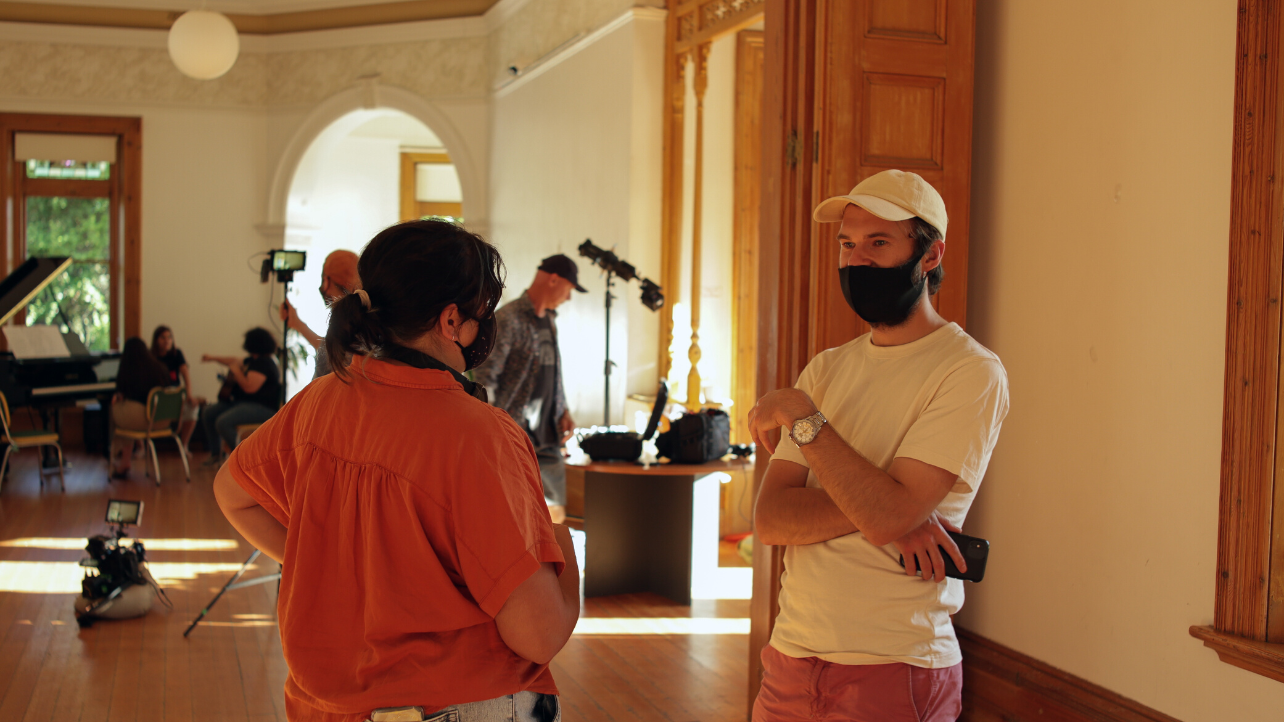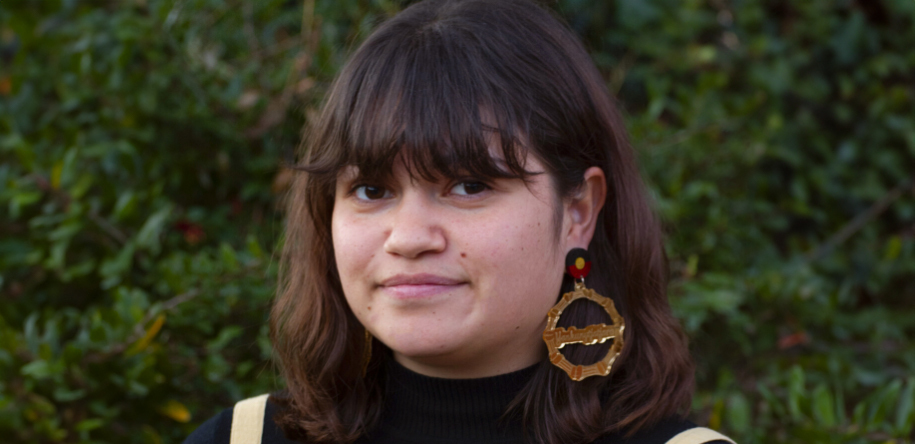Lilla Berry is a Yankunytjatjara artist and award-nominated film producer living on Kaurna Country in South Australia.
The 29-year-old has amassed an impressive list of credits since starting her career in the screen industry just four years ago with the ABC documentary short Deadly Family Portraits: Sansbury Sisters, which she produced alongside her director sister Pearl Berry.
Profiling First Nations dancers and sisters Taree and Caleena Sansbury, Sansbury Sisters was created under the Deadly Family Portraits initiative from the South Australian Film Corporation and the ABC, aimed at celebrating and showcasing the depth of artistic talent among First Nations Australian families and emerging First Nations filmmakers and was nominated for Best Documentary at the 2021 South Australian Screen Awards (SASAs).

Again working with her director sister Pearl, most recently Lilla co-produced 2022 SBS documentary Black Empire about First Nations Australian rapper Jimblah and his fight against prejudice, racism, and exploitation in the Australian music industry. The half-hour film was one of seven documentaries commissioned by SBS and National Indigenous Television (NITV) through the nationwide Curious Australia initiative, supported by the SAFC.
Lilla is also active in other areas of the arts, in 2017 forming the Aboriginal cultural contemporary dance company Of Desert and Sea. She was nominated for a First Nations Talent Award and was the winner of the Emerging Producer Award at the 2021 SASAs.
We caught up with Lilla to chat about her career so far, her hopes for the future, and what it’s like making films with your sister.
How did you get started in the screen industry?
My sister Pearl was part of the writing workshops for the final season of ABC series Black Comedy, and when we saw the South Australian Film Corporation’s call out for the Deadly Family Portraits initiative, we thought we’d throw our hats in the ring. I hadn’t been involved in film prior, but had project management and producing experience from my work in the arts. It was still a pretty steep learning curve, but I had a lot of transferable skills, and a passion for storytelling.
What do you love about working in the screen industry?
The opportunity to tell stories in a really accessible way. Film provides viewers a direct line of sight of what others are experiencing.
What was it like working on Black Empire?
Black Empire was a really fun project. I love music, so working on a music doco was awesome. Both the artists and our team were incredibly generous and talented. It was really cool to take over Carrick Hill House (a historic 1930s mansion in Springfield, South Australia) as well.

